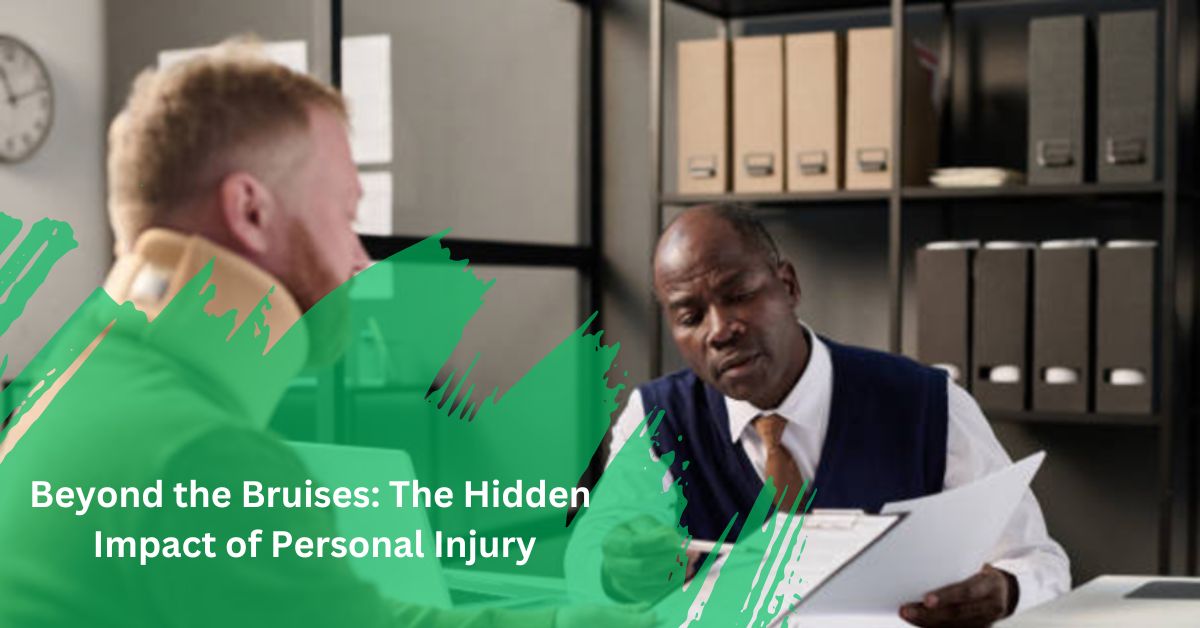Beyond the Bruises: The Hidden Impact of Personal Injury
Personal injuries can cause a lot of trauma. They can have an impact not only on your physical being but also on your emotional self. They can cause severe damage that can last for a lifetime.
Moreover, when you face a personal injury accident, you will not be able to deal with all the impacts of it alone. You will need help from a professional who can help you in guiding and understanding the legal lawsuit and how it works.
If you are living in Corpus Christi, you should consider hiring a personal injury attorney Corpus Christi. They have a huge success rate, and most of the feedback they have received is positive.
Here are some of the hidden impacts of personal injury:
Emotional Distress:
Personal injuries usually set a variety of emotions storming on so then it is how people overcome them immediately. Whether you are facing the physical pain or difficulties of a a injury, the end result is increased levels of stress, and anxiety that may irritate you.
Other than that, some people might feel a little bit hopeless, scared of what’s yet to come, and even mad at the government for allowing the incident to occur.
Individuals who suffer a personal injury may experience an emotional impact that will continue to affect all the different areas of their life, either in terms of their relationships, work performance, or personal wellness.
On the other hand, the impact on both mental and psychical health after a completed injury is also not time-limited. Some of the individuals tend to display the symptoms of depression.
For example, there may be a state of constant sadness, loss of interest in hobbies, and feelings of hopelessness. Others may have anxiety and panic attacks, in particular when they are in real life situations which remind them of the trauma they have gone through.
Conquering emotional issues usually needs professional help, like therapy or consultation. The healthcare professionals help the person learn to live with the complex emotions they are facing, and to find their own ways of coping.
Psychological Trauma:
Injuries may have not only long-lasting psychological impact but can also be serious especially if the accident is severe or close to being fatal.
The people who witnessed a traumatic event may develop post-traumatic stress disorder (PTSD) or acute stress disorder (ASD) – for example, having intrusive thoughts, flashbacks, nightmares, and constant extreme watchfulness.
Affected players often experience different kinds, shapes, and degree of clinical symptoms which might be distressing and disruptive, interfering with daily functioning and impairing quality of life.
In addition psychological trauma can also be mirrored in some cases in the avoidance behaviors program where they will go for anything and everything in order to avoid associations with their traumatic event.
While there might be social withdrawal and isolation on the back of these problems, friendships and relationships could be also difficult to keep.
Apart from that, emotional distress extremes ranging from anxiety or phobia can arise from encounters with reminders of car crash trauma which places more challenge to the continuity of normal life.
Resolving psychological trauma often resides with a professional for the marked therapy, in case with mental health specialists trained in trauma focused therapies, including cognitive-behavioral therapy (CBT), eye movement desensitization and reprocessing (EMDR).
Therapies have been shown as an effective tool to change the old psychologically unhealthy and trauma-generated perceptions and thoughts.
Such treatments are mostly focused on equipping the patients with possible mechanisms of dealing with the traumatic episodes, reducing the severity of the symptoms and gaining back their control over the life.
Loss of Independence:
People can injure themselves in a number of different ways to become physically impaired having their ability to perform everyday activities on a personal level affected.
A diminished mobility, deftness, or sensory acuity might be obstacles in moving about and retaining the feeling of one’s independence.
The individual may need to manage with the tasks as it is undeniably difficult for them to obtain help in activities such as dressing, bathing, etc.
An individual who is used to being independent will find it psychologically strenuous to adapt leading to an emotional response with negative consequences such as feelings of frustration, dependence and in some cases loss of identity.
People could become inconsolable trying to understand their changed fate or miss the way of life they left behind. Besides these physical challenges, the dependence on helpers and family members for instance may lay pressure on such bonds and lead to guilt and burden.
In order to achieve the re-gaining of the sense of self-dependence and freedom, this is key for personal injury survivors.
This could mean exploring adaptive tools, assistive devices or any other assistance aids such as wheelchairs, walkers, and handrails, which in turn improve the quality of life of the individuals.
Moreover, rehabilitation and therapy programs along with strength building and coping strategies training can help individuals feel better about themselves and foster their independence through mobility.






